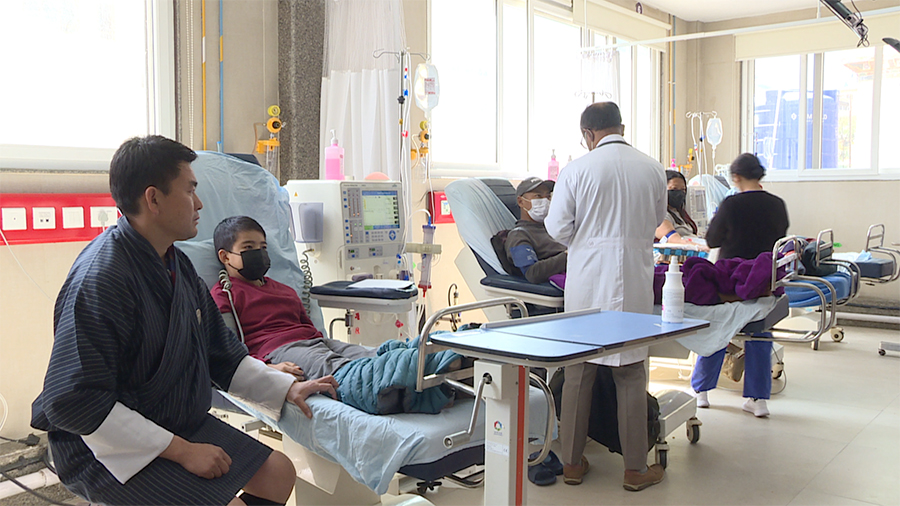
Without willing kidney donors coming forward, the dialysis centres in the country are under pressure. There are only seven districts in the country that have a dialysis facility today. And in Thimphu, the situation is much worse. Patients from other districts come to Thimphu due to better services. Besides, the country has only two nephrologists who are both stationed in the capital. With the rise in the number of patients with kidney failure, their workload has also increased.
The two nephrologists at the Jigme Dorji Wangchuck National Referral Hospital have to perform dialysis on around 50 patients every day.
Due to the increasing number of patients, the duration of the dialysis sessions has now been reduced by half. A dialysis session usually lasts for around four hours.
Today, there are around four hundred Bhutanese on dialysis in the country and overseas.
12-year-old Kezang Dorji is one of them. He comes to the dialysis centre every week. He is the youngest patient at the unit today.
Accompanied by his family, he came all the way from Samdrup Jongkhar to Thimphu for dialysis.
Kezang’s father, Pema Dendup says after being diagnosed with kidney failure, Kezang had to drop out of school. He says his son lost all enthusiasm for life.
Doctors say Kezang’s disease could have been cured if it was detected early. “Every person should do a urine test and a blood test for kidney diseases yearly to see how much their kidney is functioning or if there are any problems,” said Dr Faruk Robin, a nephrologist at the JDWNRH.
Since 2007, around a hundred patients received kidney transplants according to the Bhutan Kidney Foundation (BKF).
According to the foundation, people are afraid of donating kidneys due to lack of awareness on the transplant surgery. Mismatch of blood groups, legal and medical issues concerning the donors are also affecting the number of donors.
However, the foundation says a lack of incentive to donors is the main hindrance, which keeps people away from coming forward to donate.
According to the BKF, 15 individuals came to the foundation asking for money in favour of kidney donation in the last eight months. However, buying and selling of human organs is prohibited in the country.
Meanwhile, the Health Ministry is looking for potential partnerships from international institutions to start kidney transplant services in the country.
Tshering Deki
Edited by Kipchu









